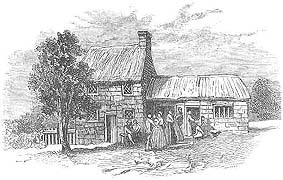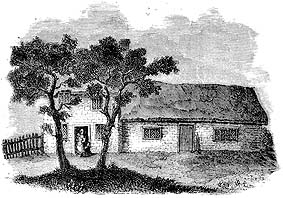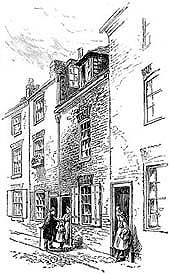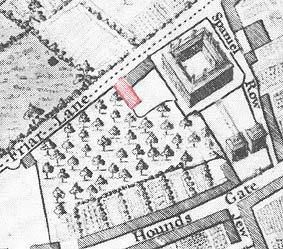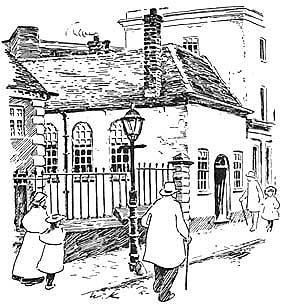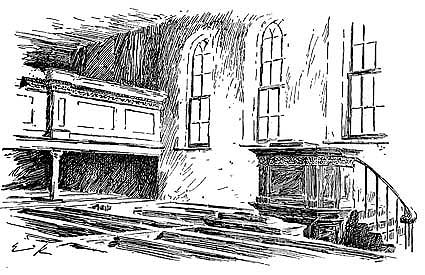A decision on the direction
the new-born Society should take was suggested by a letter from
a former resident of Bengal called Mr. Thomas. He had written
to the Society requesting funds to establish a Mission in Bengal.
There had been considerable
efforts by a Bengal resident called Mr. Grant, over a period
of 30 years, to establish a Mission through the Church of England;
with written and personal representations to the Governor-General,
Lord Hastings, the Archbishop of Canterbury, the Bishop of London
and William Wilberforce. All had finally come to nought (3).
It was just at this time that
the fledgling Baptist Missionary Society was coming into existence.
They had been completely unaware of these activities.
Mr. Thomas had previously persuaded
Mr. Grant to employ him to itinerate on his indigo plantation
at Malda. While in India he had corresponded with Mr. Booth and
Dr. Stennett, of the London Baptists, with regard to establishing
an Indian Mission, but had received a discouraging response.
In 1792 he had returned to
England and was one day at the house of Mr. Booth when he heard
of the establishment of the Baptist Missionary Society. He wrote
to Carey describing in glowing terms the prospects of success
at Malda. At the third meeting of the Committee the letter was
read and Carey proposed joining Mr. Thomas at Malda. Fuller,
who was about to visit London, decided to make enquiries about
Mr. Thomas. The outcome was satisfactory.
At a meeting of 9th January
1793 it was resolved that 'a door appeared to be open in India'
and it was suggested that Mr. Thomas should 'unite with the Society,
who would endeavour to procure an assistant to accompany him'.
Carey immediately rose to offer his services. While the Committee
were deliberating Mr. Thomas was unexpectedly announced. Carey
sprang from his seat, eager to meet his future colleague and
'they fell on each other's neck and wept'. It was resolved that
Thomas and Carey should proceed to Bengal in the Spring.
To send two missionaries to
India was beyond the resources of the Society. Mr. Thomas travelled
the country to raise subscriptions and 'received many rebuffs'.
Andrew Fuller came to London and canvassed members of the Baptist
churches from door to door. 'He frequently retired from the more
public streets into back lanes, that he might not be seen to
weep over his want of success'.
Mrs. Carey refused to entertain
the idea of going to India with her 4 sons and it was agreed
that she should stay behind until a later date and Carey should
take one son.
The funds needed were eventually
collected, and on 20th March, at Harvey Street Baptist Church,
Leicester, the farewell service was held. Andrew Fuller delivered
an address to Carey and Thomas that was so fervid that it helped
to sustain them in the difficult early years of their Mission.
On 31st May, 1793, William
Ward attended Rippon's Chapel at Walnut Tree Alley, Carter Lane
where William Carey was preaching. After the service, Ward walked
with Carey from Walnut Tree Alley to near the Monument. It is
while they were walking that a conversation took place that would
change both their lives. Laying his hand on Ward's shoulder as
they parted, he said, "I hope, by God's blessing, to have
the Bible translated and ready for press in four or five years.
You must come and print it for us." Neither ever forgot
this.
The arrangements to sail could
not have caused greater difficulties.
The East India Company would
not allow anyone, not in the Company's employ, to enter India
without a special license. This was only granted at the discretion
of the Company. Anyone caught in India without a license would
be guilty of a high crime and misdemeanour and the sentence would
be deportation at the expense of the captain who had taken them
out. European residents in India all knew of those who had entered
India without a license, and against whom no action had been
taken, but missionaries were regarded in a different light, as
it was almost universally accepted that their activities would
jeopardise British interests in India. This problem would dog
succeeding missionaries for the next 20 years.
A Company sailing ship called
the 'Oxford' had been found whose Captain was willing to take
them without a license, but serious problems over Mr. Thomas's
bad debts caused creditors to follow him with writs. These eventually
reached the Captain after they had embarked at Ryde, Isle of
White. He absolutely refused to carry them and they had to disembark.
It meant the loss of the fare of £250 and Carey was brought
to tears by the sight of the fleet (of which the 'Oxford' was
a part) setting sail for India without them.
Carey and Thomas returned to
London and Thomas went round various coffee houses in the City
looking for passages. After a long and fruitless search, one
of the waiters at the Jerusalem Coffee House put a card in his
hand stating that a Danish East Indiaman was to be heard of at
10 Cannon Street. He hastened to the office and found that the
vessel had already left Copenhagen. Carey quickly returned to
Northamptonshire to raise funds and tried again to persuade his
wife to accompany them. His wife agreed, but only on the condition
that her sister should accompany them. This would add an extra
financial burden as the total fare now required was £600.
The captain of the 'Oxford' had returned £150 and Carey
proceeded to realise all his worldly assets, which came to £18
10s. With other help the total figure came to £300. They
proceeded to negotiate with the agent offering to use just two
cabins, with some of the party eating in the servant's mess,
etc. These were accepted and on 13th June, 1793, the party embarked
on the 'Cron Princessa Maria', a Danish vessel with a Danish
and Norwegian crew, and an English captain called Captain Christmas.
(4)
From the first day the Captain
treated them as if they had paid the full fare and the voyage
proved uneventful. Carey learnt Bengali under the tuition of
Mr. Thomas and, as the ship sailed up the Bay of Bengal, 'his
mind seemed to expand with the prospect of the great missionary
field which was presented on all sides'.

